
Timeline
Title
Country/Nationality
Jonathan Swift
Swift is remembered for works such as A Tale of a Tub (1704), An Argument Against Abolishing Christianity (1712), Gulliver's Travels (1726), and A Modest Proposal (1729). He is regarded by the Encyclopædia Britannica as the foremost prose satirist in the English language, and is less well known for his poetry. He originally published all of his works under pseudonyms – such as Lemuel Gulliver, Isaac Bickerstaff, M. B. Drapier – or anonymously. He was a master of two styles of satire, the Horatian and Juvenalian styles.
His deadpan, ironic writing style, particularly in A Modest Proposal, has led to such satire being subsequently termed "Swiftian".
Swift was a prolific writer, notable for his satires. The most recent collection of his prose works (Herbert Davis, ed. Basil Blackwell, 1965–) comprises fourteen volumes. A recent edition of his complete poetry (Pat Rodges, ed. Penguin, 1983) is 953 pages long. One edition of his correspondence (David Woolley, ed. P. Lang, 1999) fills three volumes.
Books by Jonathan Swift
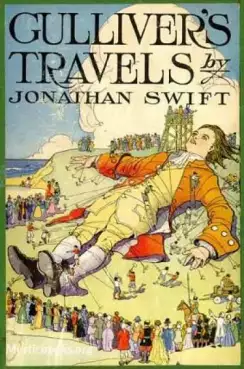
Gulliver's Travels
Comprised of four parts, Gulliver’s Travels documents the bizarre, yet fascinating voyages of Lemuel Gulliver as he makes his way through several uncharted destinations, experiencing the lives of the small, the giant, the scientific, and downright ec...
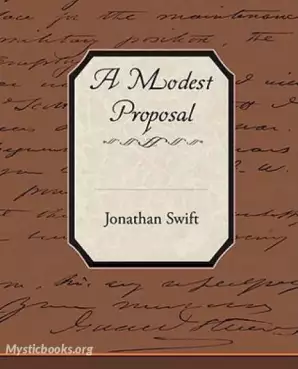
A Modest Proposal
A Modest Proposal For preventing the Children of Poor People From being a Burthen to Their Parents or Country, and For making them Beneficial to the Publick, commonly referred to as A Modest Proposal, is a Juvenalian satirical essay written and publi...

A Tale of a Tub
A Tale of a Tub. Written for the Universal Improvement of Mankind. was the first major work written by Jonathan Swift, arguably his most difficult satire and perhaps his most masterly. The Tale is a prose parody divided into sections each delving int...

The Battle of the Books
"The Battle of the Books" depicts a literal battle between books in the King's Library (housed in St James's Palace at the time of the writing), as ideas and authors struggle for supremacy. Because of the satire, "The Battle of the Books" has become...

Advice to the Grub Street Verse-writers
LibriVox volunteers bring you 9 different recordings of Advice to the Grub Street Verse-writers by Jonathan Swift. This was the weekly poetry project for the week of February 24th, 2008.
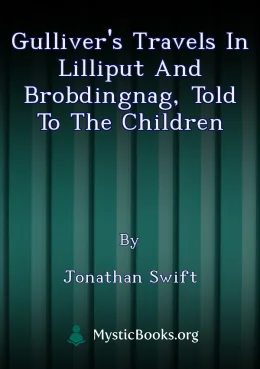
Gulliver's Travels in Lilliput and Brobdingnag, Told to the Children
This enchanting children's adaptation of Jonathan Swift's classic novel retells the amazing adventures of Lemuel Gulliver, a ship's surgeon who finds himself shipwrecked on the shores of Lilliput, a land inhabited by tiny people no taller than his fi...
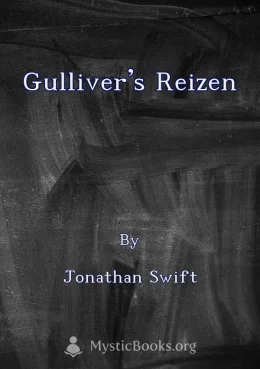
Gulliver’s Reizen
Gulliver's Reizen is een satirisch boek uit 1726 van de Ierse schrijver Jonathan Swift. Het beschrijft de reizen van Lemuel Gulliver, een Engelse chirurg, naar verschillende vreemde landen. Deze landen worden bevolkt door allerlei vreemde wezens, zoa...

Gullivers Rejser
Gullivers Rejser er en klassisk satire, der følger Lemuel Gulliver, en engelsk kirurg, på hans fantastiske rejser til forskellige fantastiske lande. Den første del af bogen, 'Rejse til Lilliput', skildrer Gullivers møde med en civilisation af små men...
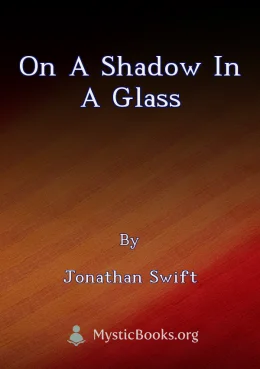
On A Shadow In A Glass
This book, while the title suggests a work of fiction, is likely a collection of essays or satirical writings by Jonathan Swift. Given Swift's known body of work, the content might explore themes of social commentary, political critique, religious hy...

Poems of Jonathan Swift, Volume One
This volume of poems by Jonathan Swift, a giant of English literature, showcases his wit and satirical prowess. Swift's verses offer sharp observations on societal ills, particularly the corruption of the wealthy and powerful. His keen eye for hypoc...
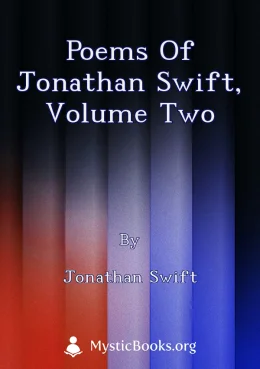
Poems of Jonathan Swift, Volume Two
This second volume of Jonathan Swift's poetry delves into a wide range of topics, showcasing his biting wit and satirical commentary on the social and political issues of his time. From his fierce criticisms of monetary debasement and fractional rese...

Gulliverin matkat kaukaisilla mailla
''Gulliverin matkat kaukaisilla mailla'' on Jonathan Swiftin kirjoittama satiirinen romaani, joka seuraa Lemuel Gulliverin seikkailuja eri fantaasimaailmoissa. Tarinan alussa Gulliver haaksirikkoutuu Lilliputiin, jossa pienikokoinen väestö elää moni...

Viajes de Gulliver a diversos países remotos
Los Viajes de Gulliver, una obra satírica de Jonathan Swift, cuenta la historia de Lemuel Gulliver, un médico de abordo, que viaja a cuatro países extraños. Durante sus viajes, Gulliver se encuentra con seres diminutos, gigantes, caballos inteligente...
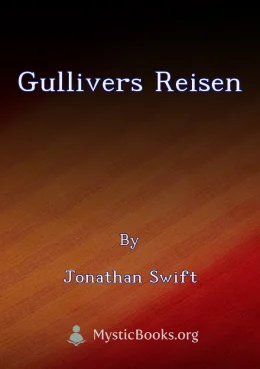
Gullivers Reisen
Gulliver's Travels is a classic of English literature, a satirical masterpiece that remains strikingly relevant today. Through the fantastical adventures of Lemuel Gulliver, Swift critiques the human condition, exploring themes of power, ambition, an...

Bettesworth's Exultation
Bettesworth's Exultation is a satirical poem by Jonathan Swift, first published in 1733. The poem lampoons Serjeant Bettesworth, a lawyer who had threatened to sue Swift for libel. Swift responds by mocking Bettesworth's vanity and ambition, and pred...

Market Women's Cries
Jonathan Swift's 'Market Women's Cries' is a collection of satirical poems that capture the bustling atmosphere of the 18th-century English market. Swift uses the distinctive cries of the vendors to depict the characters and their social interactions...

Description Of A City Shower
A witty and humorous poem describing a sudden and intense rainstorm in a city. The poem vividly captures the sights, sounds, and smells of the storm, as well as the reactions of the city's inhabitants.